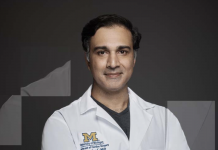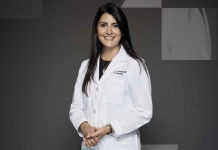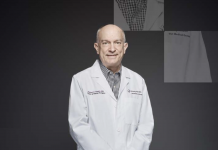
In the divisive COVID-19 vaccine debate, Americans have generally fallen into three groups: ÔÇ£Yes, please,ÔÇØ ÔÇ£Hell no,ÔÇØ and ÔÇ£Maybe if I have to.ÔÇØ Dr. Herbert C. Smitherman Jr., however, is a champion for a fourth, less-noticed group ÔÇö those who want the shots but canÔÇÖt go out to get them.
Detroit has an estimated 40,000 people who cannot leave their homes due to age, disability, transportation issues, or illness. Smitherman, president and CEO of the nonprofit Health Centers Detroit Medical Group, saw a looming problem and got to work early on solutions.
ÔÇ£I knew there would be people who were particularly vulnerable,ÔÇØ says Smitherman, 61, a Wayne State University School of Medicine professor and vice dean of diversity and community affairs. ÔÇ£The question was, How do we do outreach with them? Some of the households do not have landlines or internet.ÔÇØ
In April and May, the Detroit Area Agency on Aging made contact with groups already providing help for the homebound, such as vendors delivering meals and supplies, and recruited them to pass along information about SmithermanÔÇÖs in-home vaccination program. Health Centers Detroit trained home nursing services on how to administer the vaccines, too. Because the program used trusted in-home agencies, Smitherman says, residents were more comfortable asking for and permitting help.
Of the 820 people contacted in the initial wave of outreach to offer vaccinations, 418 were receptive. By now, more than 600 homebound residents are fully vaccinated. ItÔÇÖs not a gigantic number, but itÔÇÖs a start ÔÇö and word of mouth is creating more interest. ÔÇ£Neighbors are seeing the cars show up and say, ÔÇÿWhatÔÇÖs going on? Did something happen?ÔÇÖÔÇØ Smitherman says. ÔÇ£WeÔÇÖre getting about 20 to 30 calls per week from people interested in getting a shot.ÔÇØ
None of this is surprising given SmithermanÔÇÖs background. His mother was a school principal and his father a groundbreaking organic chemist involved in the development of several Procter & Gamble products, including Crest toothpaste and Folgers coffee. Both were advocates of public service in the Cincinnati neighborhood where he grew up. The Smithermans helped maintain a neighborhood garden, his father started a baseball team for local kids, and a homeless teen came to live with his parents and four siblings.
ÔÇ£It was always a given that we would all go on to get an education, but our parents modeled that itÔÇÖs not only about education,ÔÇØ Smitherman says, noting his father was the first Black person with a doctorate hired by P&G. ÔÇ£Their thinking was, once you get that degree, how are you going to serve your community and your country?ÔÇØ
Though he was a gifted musician with skills on clarinet, flute, and saxophone that earned him scholarship offers, his father persuaded him to pass by paying for his Northwestern University education in hopes heÔÇÖd take an interest in applying his math and science skills. It worked; Smitherman fell in love with biological sciences and went on to pick up a medical degree at the University of Cincinnati and a masterÔÇÖs in health services administration at the University of Michigan. HeÔÇÖs lived here ever since.
His research has long focused on health issues related to underserved populations with poor access to proper health care, so the question of COVID vaccinations for homebound Detroiters fit squarely in his bailiwick. He believes the program is more effective than one the city launched in June in which officials cold-called, texted, and doorknocked to reach unvaccinated residents. ÔÇ£For the seniors who do have telephones, they are often not answering telephone calls from people they donÔÇÖt know, as they shouldnÔÇÖt,ÔÇØ Smitherman says.
Ronald Taylor, president and CEO of the Detroit Area Agency on Aging, agrees: ÔÇ£Dr. Smitherman has served as an advocate and cheerleader to get people vaccinated. He was able to secure the vaccine and provide the training, and was able to walk with us in regard to serving as our medical advisor. HeÔÇÖs been key in making this happen.ÔÇØ The program is now administering boosters in addition to giving participants their first and second doses.
Herbert Knight, a 74-year-old homebound resident with two knee replacements, got his shots at home and is now awaiting his booster, says his caregiver, Michelle Morton. ÔÇ£A lot of people donÔÇÖt want to go out, canÔÇÖt go out, canÔÇÖt barely walk,ÔÇØ Morton says. ÔÇ£ItÔÇÖs a beautiful thing to do for people. More people need to know about it.ÔÇØ
This story is part of the 2022 ║┌┴¤═° Detroiters package, our annual roundup of╠²people who make Motown better, more interesting, and more fun. Learn more about our ║┌┴¤═° Detroiters╠²here, and read more stories from the January 2022 issue╠²here.
|
| ╠² |
|








